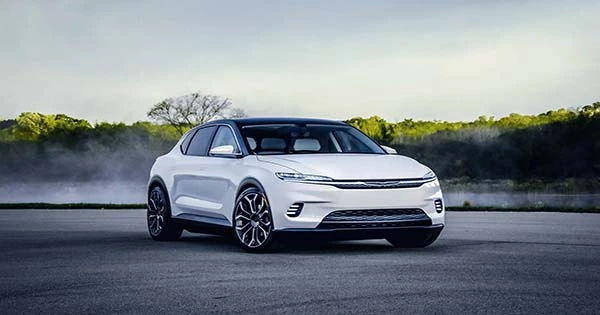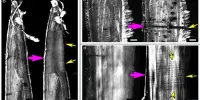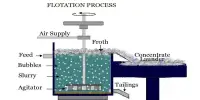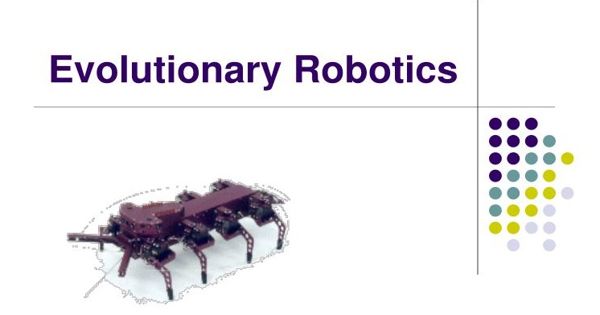Stellantis said on Monday that it will invest $2.8 billion (CAD $3.6 billion) in two of its Canadian operations to enhance electric car manufacturing. The money comes from Stellantis’ $35.5 billion commitment to electric cars and new software over the next year as part of its plan to phase out internal combustion engines and become carbon-neutral by 2038. During a ceremony at the automaker’s Automotive Research and Development Center in Windsor, Stellantis North America chief operating officer Mark Stewart and Canadian Prime Minister Justin Trudeau announced the redevelopment of the Windsor and Brampton, Ontario plants.
The Canadian government and the Ontario government, which plan to invest up to $410.7 million (CAD $529 million) and $398 million (CAD $513 million), respectively, alongside Stellantis, will provide about a third of the new funds, indicating that Canada is keen to support domestic EV production at a time when advancing climate change initiatives coincide with increasingly dire supply chain constraints. “Today’s agreement on made-in-Canada electric cars is another another investment in our people and our future,” Prime Minister Justin Trudeau said at the ceremony. “We’re establishing a world-class car sector in Canada, as well as an inventive economy and a clean, prosperous future for everybody.” This is what a thriving economy and environment looks like.”
According to Stellantis, the financing will result in the creation of around 650 engineering positions at the Windsor R&D facility. The Stellantis-LG Energy Solution joint battery venture, which was launched in October of last year, will also provide 2,500 employment, according to the business. Stellantis only stated that its new plant will be built in North America at the time, but it’s now evident that the manufacturer has its sights set on Ontario. Stellantis, which owns Alfa Romeo, Fiat, Chrysler, Dodge, Jeep, Ram, and Peugot, hasn’t indicated which of its brands would be affected, but it’s probable that development on the Chrysler Pacifica Hybrid and other Chrysler EVs, as well as some electric Dodge cars, will continue.
The Pacifica, as well as the Chrysler Voyager and Grand Caravan, are now produced in Windsor, with the latter being limited to the Canadian market. Chrysler, which is best known for its minivans and is a family-friendly brand, will become all-electric by 2028, according to Stellantis, who spoke at CES this year. At the same time, the manufacturer presented the Airflow Concept, an electric SUV with all-wheel drive. Meanwhile, the Brampton plant produces the Chrysler 300, Dodge Challenger, and Charger, all of which are nearing the end of their production runs. Dodge has announced that the eMuscle, an electric muscle vehicle, would be released in 2024.
The business stated in a statement that retooling at Windsor will begin in 2023, while retooling and modernization at Brampton will begin in 2024, with production at the latter resuming in 2025, with an “all-new, adaptable architecture to support the company’s electrification goals.” Stellantis said it will reveal which brands will be affected by the new funding at a later date. Regardless, we can anticipate the vehicles built in those plants to use Stellantis’ new software system, which the company claims will earn $22.5 billion in yearly revenue.
By 2024, all new Stellantis vehicles will be equipped with the automaker’s platforms, which include the “STLA Brain,” a cloud-connected technology that allows for over-the-air software updates; the “SmartCockpit,” a platform developed with Foxconn that provides applications such as navigation, voice assist, an e-commerce marketplace, and payment services; and “AutoDrive,” a platform developed with BMW to provide automated driving features. Pacificas from this model year may upgrade to an Amazon Fire TV to stream or download programs and movies or get information through Alexa, a relationship that will reach millions of Stellantis vehicles by 2024.
Stellantis presently sells 29 electrified vehicles worldwide under its 14 brands. By the end of the decade, the manufacturer expects to have 75 BEVs on the market, with 25 of them aimed at the US market. Stellantis just unveiled its first-ever completely electric Jeep SUV, which will be on sale next year, as well as its new Ram 1500 BEV truck, which will be available in 2024.
















